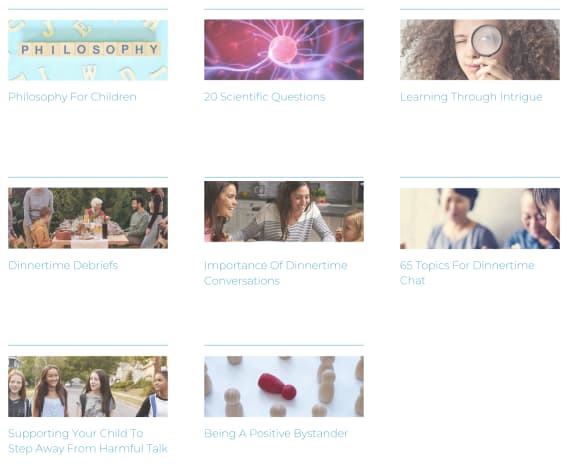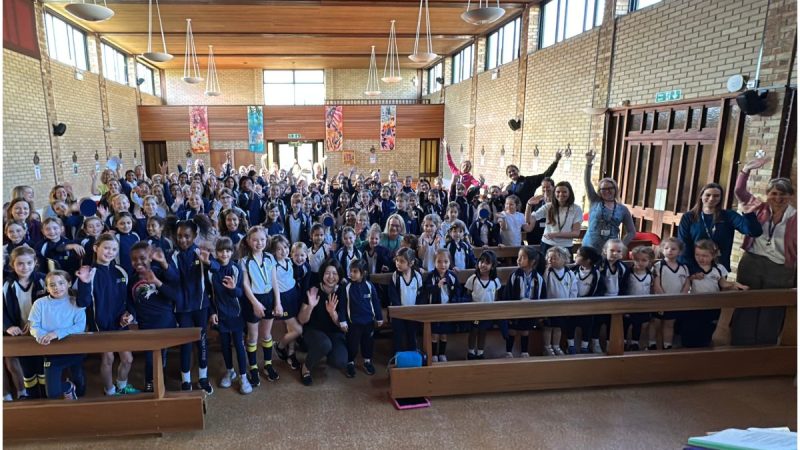This week at Tooled Up we’re talking about talking! The quality of conversations we have with our children can play a huge role in their development and wellbeing. Family talk offers children the chance to open up their thinking, to help navigate emotional or social challenges, and can enhance their oracy and academic abilities. We have a number of interesting resources to support family chat.

Our recent webinar with the philosophy charity SAPERE is now available. Led by trainer Emma Leeson, this webinar explains what it’s like to philosophise and is aimed at any parent who is curious about the power of philosophical conversations with their children.
Developing children’s intellectual curiosity is key to unlocking their learning potential. We have questions galore for you to mull over within family life: 20 Scientific Questions to ask children and teens or activities like Learning Through Intrigue that encourage an interest in the world around us.
One of the optimal times to chat to our children is around the dinner table. In this short video entitled ‘Dinnertime Debriefs’, Dr Weston explains the role that dinnertime conversations can play in boosting children’s resilience, wellbeing and academic attainment. Researcher Mishika Mehrotra produced this podcast for Tooled Up on her work exploring the links between conversation and children’s development: benefits that go well beyond literacy and oracy and into mental function and “school-readiness”. If you get stuck for conversation ideas, here are 65 Topics to work your way through!
Of course, we also need to be aware that some talk can be harmful. As well as the way we talk to our own children, we need to think about the ways they communicate with one other. These tips from psychologist, Dr Elly Hanson will help you tackle Harmful Talk in children’s peer groups. Use these activities about being a positive bystander, or “upstander”; we need our children to be able to comfortably challenge poor behaviour in peers when they see or hear it.








